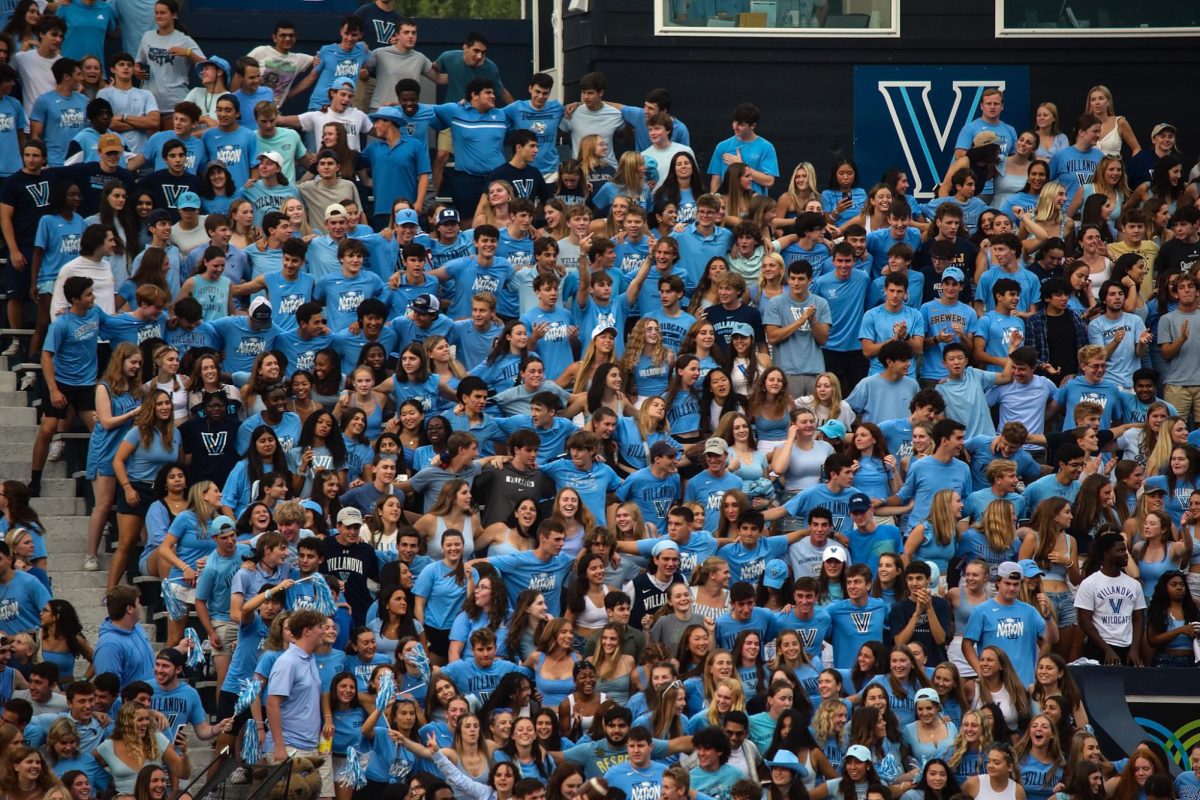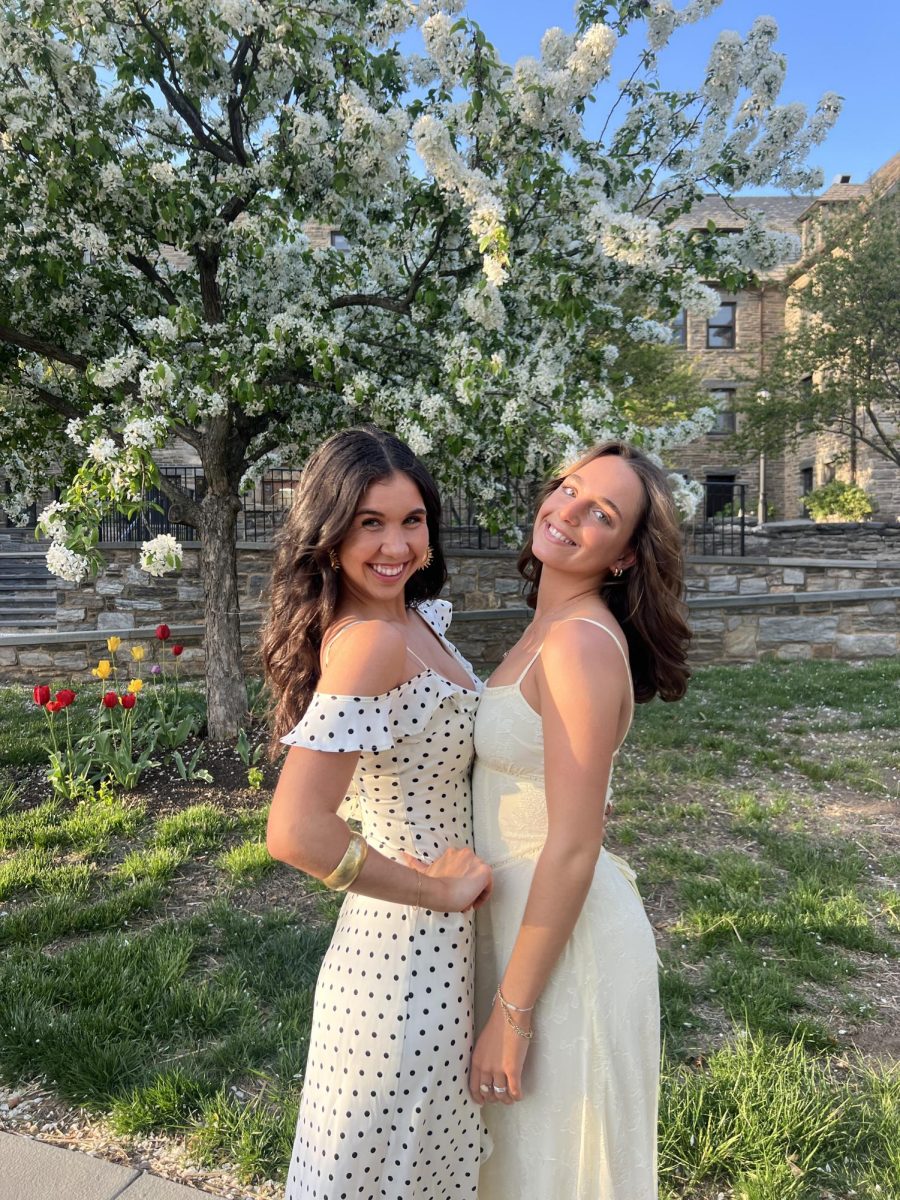There is no denying that other than Villanova School of Business (VSB), Villanova’s pride and joy is its basketball programs. At other schools, like Alabama, LSU, Georgia and Notre Dame, the “money-maker” is the football team. Each year, teams at schools in the ACC, Big Ten and SEC generate millions of dollars’ worth of revenue.
Around the country, people know the names of coaches like Kirby Smart and Nick Saban, but away from the Main Line, not many people would know the name Mark Ferrante.
With men’s basketball, it is the total opposite. Basketball fans from Seattle to Chapel Hill know Jay Wright’s name and have come to learn Kyle Neptune’s. However, not many people would know the name of Georgia’s basketball coach, Mike White.
Aside from being a much smaller program than Auburn or LSU, Villanova football is not as popular among the study body, faculty or alumni.
During basketball season, every seat in the Finneran Pavilion is filled. When the Wildcats play at the Wells Fargo Center, students are tailgating in the cold or pouring rain three hours before tip-off. Whether the game is against Delaware State or a crucial matchup with UConn, fans always bring the energy.
While the men’s basketball team plays many games at the 21,000-seat Wells Fargo Center, the football team never plays games at Lincoln Financial Field. The capacity at Lincoln Financial Field is 69,796 seats compared to just 12,500 at Villanova Stadium.
For LSU, playing at an NFL stadium would be no problem. Given that Tiger Stadium in Baton Rouge has 102,321 seats, LSU would have no issue filling the stands, but the same cannot be said for Villanova.
While most seats are filled for Villanova basketball games, the only time this is guaranteed to happen for football is three times per season. The first home game usually brings a large crowd, followed by parents’ weekend and homecoming. Other than these dates, the seats in Villanova Stadium are mostly empty or empty at halftime.
Owen Hewitt has spent many weekends watching Villanova football. As co-Sports Editor of The Villanovan, Hewitt is in the press box for all home games and has seen, first-hand, the lack of attendance at games.
When asked why he thinks attendance is so poor, Hewitt mentioned that Villanova is playing a tier below the likes of Georgia and LSU.
“I think the FCS (Football Championship Subdivision) label has a lot to do with it,” Hewitt said. “There’s a stigma around FCS football as a lesser game than its FBS (Football Bowl Subdivision) counterpart. It’s true in some respects, there’s a definite jump in talent from the CAA to the SEC or Big Ten. With some exceptions, you’re not going to see guys that will go to the NFL.”
Hewitt also mentioned how a university’s priority can have a huge impact on the attention given to certain teams.
“I think the other part of it is where the University’s attention is going,” he said. “The men’s and women’s basketball programs garner the most attention from the University because of their historic success, so it’s where the majority of student interest lands. If the University paid more attention to football, more students would probably be interested in it. Villanova students will support a winning football team, the question is how that support falters when the team’s not making the playoffs or particularly outstanding in a certain year.”
Last year, the men’s basketball team finished with a 17-17 record. Even when the team was on two or three game losing streaks, students were still showing up to the games or cheering on the team from their residence halls, Kelly’s or hometowns.
Having spent so many Saturdays covering the team, Hewitt feels strongly that people should attend more football games because, at the end of the day, FCS is still Division I football.
“If you’re a sports fan, FCS football is such an enticing thing to watch because every week matters,” Hewitt said. “It’s not like FBS football, where as a smaller school you can’t have any shot at the championship if you lose a single game. I think that’s where FCS actually has an edge as a product over FBS because if your ultimate goal is to watch your team win a championship, you don’t have to lose all hope after a single loss.”
While Hewitt may be right about FCS football being high-level, the reality is that a Saturday on the Main Line will never compare to a Saturday in the South. Tailgates in the ACC and SEC rival or surpass the ones at Wells Fargo because stadiums are full and students never leave at halftime.
Although the football culture at Villanova is lagging, something that remains intact is the “family feel” of the University. Everyone knows everyone and the athletes are no exception.
At Alabama or LSU, student-athletes are often on their own island, but, at Villanova, it is common to see athletes and regular students dining, rooming and taking classes together.
Whether they are watching basketball, lacrosse, soccer or football, members of the study body are likely watching their theology classmate, hallmate or friend.
From day one, the University makes it clear that it is the duty of Villanovans to support and be there for one another inside and outside the classroom. In other words, even if the football team is not competing for a national championship, going to more football games would show a group of fellow community members the respect, attention and support their hard work deserves.







